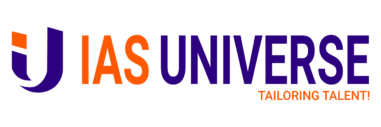Which optional should I choose? This is the most confusing yet significant decision in your civil service preparation. It is most confusing because the optional faculties of their respective subjects will showcase their optional as “Go To” optional and that by taking it, you’ll clear this exam with all certainty. This confusion gets further compounded by the seniors (veterans as they call them) of this exam who blindly either curse an optional subject because they have been failing to get good marks in it or they exacerbate an optional subject just because they are in love with the faculty rather than the subject.
It is the most significant decision you have to make because without a good score in your optionals, it is very difficult to make it to the final rank list. I speak with empirical evidence that if you observe the first 250 rank holders and their optional marks, their optional marks will range somewhere between 285-320 marks out of total 500 marks i.e. around 60%. Also if you observe those students who gave the interview and missed on the final selection very closely, most of the students will have lost it in optionals as they would be scoring 230-260 i.e. around 50%. So this 10% difference in marks in optional is what separates students who made it with students who just missed it. Hence choosing your optional is a significant decision in the start of your civil service preparation.
Now the most grinding question for every student, especially fresher, is how do I go about choosing an optional subject. So I’ll discuss with you a methodology which may help you clearly choose an optional or at least break your dilemma if you have between 2 or more optionals you are having difficult time deciding.
| DON’TS IN CHOOSING AN OPTIONAL 1. Listening to your seniors or veterans blindly. 2. Falling prey to advertisements of optional faculties promising neverland. (Neverland is fictional and it doesn’t exist just like the promises) Note that not all faculties are bad and hence its not meant to offend any individual or any institute. But do the following research that I’m going to tell you before choosing anyone. 3. Being too lazy to research the optional subjects and hence choosing the optional that your friend has taken. 4. Thinking that an optional subject will help in your general studies. For instance choosing geography optional will help in GS1 or choosing public administration will help in GS2. This is not completely true but just a marketing gimmick. 5. Choosing an optional because your parents are forcing you to take a subject because of hearsay that a particular optional is scoring well or they have seen a toppers interview and are highly influenced by them. |
So what is the approach in choosing an optional? How do I start? I will give you 5 codes to help you answer these questions.
Code1: Understanding broadly different optionals available for civil service exam preparation.
To elaborate on this, you should know that there are 2 kinds of optionals:
1. Popular optionals
2. Specialised optionals.
Note: This classification is mainly based on the market and not created by UPSC.
| Popular Optionals | Specialised optionals |
| 1. Public Administration | 1. Mathematics |
| 2. Political Science and International relations. | 2. Physics |
| 3. Sociology | 3. Law |
| 4. Anthropology | 4. Mechanical engineering |
| 5. Geography | 5. Medical Science |
| 6. Literature | 6. Zoology |
Note: The above list is not exhaustive but only indicative
Popular Optionals: The Advantages of choosing this group includes:
- Coaching widely available
- Materials are plenty
- Easy to find a peer group
- Syllabus is relatively shorter than the specialised optionals and requires less time to complete the syllabus.
- Test series are available
- Some overlap with GS (Note: this is greatly exacerbated by the market)
- Most of the toppers in the top 250 are from this group.
The disadvantages of choosing this group includes:
- Many opt for it. Hence the name “Popular”. So in the mains exam, many will compete after reading the same material and attending the same coaching. So many will end up writing the same answer.
- So many faculties are available that students may be confused on who to join.
- Materials are plenty and hence high chances that the students may overdo their content preparation part.
Specialized Optionals: The Advantages of choosing this group includes:
- These are mainly science or logic based optionals. So once you develop an understanding of the subject, revising it becomes easier.
- The questions and topics within any chapters are more repetitive and hence predictable.
The Disadvantages of choosing this group includes:
- The syllabus is vast and the time taken to prepare for these optionals are more.
- The coaching and materials available are low. So you may have to compromise on the quality due to lack of availability.
- Finding a Peer group is difficult.
- Test series may be available but the evaluation of your papers will not be upto the mark.
CHOOSE A SPECIALISED OPTIONAL IF YOU HAVE THE FOLLOWING QUALITIES
- Have the same background in your academics
- Have been exceptionally good in your academics (Note here that exceptional means you are/have been a topper in this subject in your college days)
- After analysing the previous year paper, you know that at least 80% of the questions asked make sense to you. That means if given a pen, you can write an answer to these questions. It doesn’t mean you write perfect answer but write at least 30% of what the demand of the question is.
If either of the above 3 conditions will not hold true then please refrain from choosing a specialised optional.
By following the above explanation let us say that you have clarity on whether you want to go for popular optional or specialised optional. If you choose the popular optionals group then the next question is which subject within the popular optional group should you choose. [This doubt will not come up for the specialised optional group because you will choose the one you have specialisation in].
Code2: To Understand which subject will interest you the most. In other words, which subject do you have an innate aptitude in. To do this, take all the subjects enumerated in the table above and start reading their respective NCERTs. For instance if it is geography, read 6-10th Ncert, if it is public administration and political science and international relations then read social science Ncert 6-12th. Also see if you can see some relevant youtube videos too.
Note1: Let us say you chose an optional for which you don’t have an NCERT. Ex: Anthropology. Then go through the syllabus and choose 5 topics that interest you the most and start googling these topics and reading them and see if you can not only understand these topics but also simplify these concepts so that you can teach anyone.
Note2: If you are in a dilemma between 2 optionals. Then read NCERTS concerning both the optional. Reading NCERTs is never a waste of time and you eventually have to read these NCERTs. So take the reading seriously.
Now after reading the NCERTs of the concerned optional, you’ll realise the following things
- Reading was joyful
- You developed clear understanding
- You became more curious to learn more
- You could answer most of the questions asked at the end of the chapter.
If the above realisations are true, then you know that you have an innate aptitude or likability towards that subject. JUST GO FOR IT!!
Now through Code 2, let us assume that you were able to choose a subject. WHAT NEXT?
[Code 2 may not apply for people who choose among specialised optional group but I advise them to follow from Code3]
Code3: After choosing the subject, now you have to gather as much UPSC exam relevant information about that subject. For instance, a booklist to read, notes available in the market, coaching available in the market, how to make notes on every chapter, which test series is more relevant. The best way to do this is to see or read at least 10 different toppers’ strategy articles or videos on the same optional. By looking at different approaches and strategies on the same subject, make your own strategy by finding answers to the following
- Boolist to read
- Notes available
- Important chapters to emphasise
- How to make notes?
- Which test series is better?
….. So On.
Code4: Now that you have your strategy ready, focus on finishing the syllabus as soon as possible. Important rule here is to finish the syllabus as fast as possible though imperfectly because reading and revising them many times will make it perfect later on. Please don’t try for perfection in your first round of studies itself. This will lead to spending more time on some parts of the syllabus and hence may lead to syllabus incompletion.
Code5: Revise your notes, write answers to previous year questions. The more the better.
Scoring well in optional is very important to clear this exam. To score well, choosing the correct optional is more important. Many people take an optional, read it for several years and then change the optional. The reason is that they would’ve chosen the optional without any proper research as highlighted in the table above (DON’TS IN CHOOSING AN OPTIONAL).
So I request all the students to please read the article carefully and choose the optional even more carefully.
We Work so that we can put a small smile on your face 🙂

